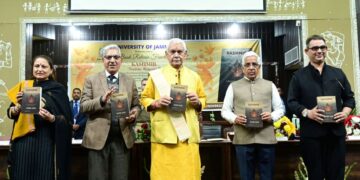Srinagar: The High Court of J&K and Ladakh has held that maintenance of electric supply lines is the duty of the concerned agencies and the negligence in the accident that happens in relation to such activity has to be presumed.
A division bench comprising Justices Sanjeev Kumar and Sanjay Parihar held the J&K UT government payable to a compensation of Rs 11,20,000 to the next of the kin of a 45-years-old man killed in Uri after he came under a falling 11000 KV live electric wire 12 years ago.
The incident was attributed to the negligence of the concerned UT agencies and after much public outcry an FIR was registered with Police Station Bijhama, Uri.
The matter went to the J&K High Court where-in victim’s relatives pleaded that the deceased was a carpenter, the sole bread earner of the family, earning Rs 500 per day.
The judgement was assailed by the government on the ground that the writ petition involved complicated and disputed questions of facts which could not have been adjudicated upon or determined by the writ court in exercise of extraordinary writ jurisdiction under Article 226 of the Constitution.
It was also challenged on the quantum of compensation by contending that the writ court has not followed the guidelines for computing the compensation as laid down in the case of National Insurance Company Ltd. Vs. Pranay Sethi reported in AIR 2017 SC 5157.
Hearing the case the division bench concluded that the writ court has rightly concluded that the accident was attributable to the negligence of the appellants. “The maintenance of electric supply live lines is the duty of the appellants and more particularly when the appellants are dealing with such hazardous activity. The negligence in the accident that happens in relation to such activity has to be presumed,” it said.
The bench, however, said that the victim’s family has not shown any document to substantiate the age of the deceased at the time of the accident.
It opined that the writ court has erred in computing a just and fair compensation payable to the respondents (family of the deceased).
Admittedly as is reflected in the post mortem report, the age of the deceased was 45 years and in absence of any other proof on record the same should have been taken as a basis for working out the compensation to be paid to the respondents, it said adding that the case attracted principle of doctrine of res ipsa.
“Similarly, the writ court has failed to appreciate that in the absence of any proof brought on record by the petitioners with regard to the income of the deceased, the income of deceased ought to have been determined on the basis of minimum wages which were prescribed for a labourer at the relevant point of time,” noted the judges.
The minimum wages as is contended by the learned counsel for the appellants in the year 2013 was less than Rs 200, but having regard to the facts and circumstances, we have taken minimum wages as Rs 250 per day, the judges recorded.







